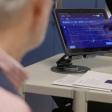
San Francisco, CA — Edward F. Chang, MD, professor and Joan and Sanford Weill Chair of Neurological Surgery at UC San Francisco, has been awarded the 2025 Gruber Neuroscience Prize for his seminal contributions to understanding how the human brain enables speech. His research has yielded the most detailed insights to date into how the brain encodes the sounds, rhythms, and articulatory movements of spoken language—advances that have reshaped neuroscience and opened new frontiers in clinical care.
Presented annually by The Gruber Foundation at Yale University, the prize is among the most prestigious international honors in the field of neuroscience. It recognizes scientists whose groundbreaking work fundamentally advances our understanding of the brain and nervous system.
“Eddie Chang has made truly amazing contributions to our understanding of how the brain encodes sensory and motor information, and how to use this knowledge to develop next generation therapies for patients with serious neurologic disabilities,” said Stephen Hauser, MD, a UCSF neurology professor and the director of the Weill Institute for Neurosciences. “Eddie is inspiring in so many ways: he’s a phenomenal physician; an innovator who connects bedside investigations with the very best in modern biology, engineering and computation; and a fabulous educator and role model to trainees and colleagues across UCSF and beyond. I cannot imagine a more worthy recipient of this year’s Gruber Prize in Neuroscience.”
Chang’s pioneering research combines high-resolution brain recordings and direct cortical stimulation in awake neurosurgical patients. His work has mapped the neural systems supporting both speech perception and production, revealing how the brain encodes phonemes, syllables, vocal pitch, and how these elements are dynamically organized into fluent speech.
His work has shown that the brain represents speech not as isolated sounds, but as coordinated patterns of articulatory gestures and acoustic features. His mapping of speech articulators in the sensorimotor cortex revealed a structured, hierarchical organization for controlling the tongue, lips, jaw, and larynx—laying the foundation for understanding how we fluidly produce words.
In parallel, his studies of the auditory cortex have revealed how the brain extracts phonetic features from continuous speech and filters background noise, providing key insights into the neural basis of speech perception and its disruption in language disorders such as aphasia.
These discoveries stem from Chang’s deep expertise in brain mapping for epilepsy and brain tumors—areas in which he is internationally recognized as a clinical and surgical leader. His use of awake brain surgery and cortical mapping to preserve critical functions has enabled safe, tailored neurosurgical interventions for patients with neurological disease while also creating unprecedented opportunities to study human cognition at the neural level.
While his scientific advances have also informed the development of speech neuroprosthetic devices for individuals with paralysis, the core of Chang’s work is a transformative exploration of how the brain gives rise to spoken language.
“This recognition is deeply meaningful,” said Chang. “Our goal has always been to understand how the brain makes speech possible. These processes are deeply embedded in the brain’s architecture and reveal something essential about what makes us human.”
Chang joins a distinguished list of past Gruber Neuroscience Prize recipients who have shaped modern neuroscience, including UCSF professors Lily and Yuh Nung Jan (2012).
The prize includes a $500,000 honorarium and will be presented to Chang on November 16 at the Society for Neuroscience Annual Meeting in San Diego.




